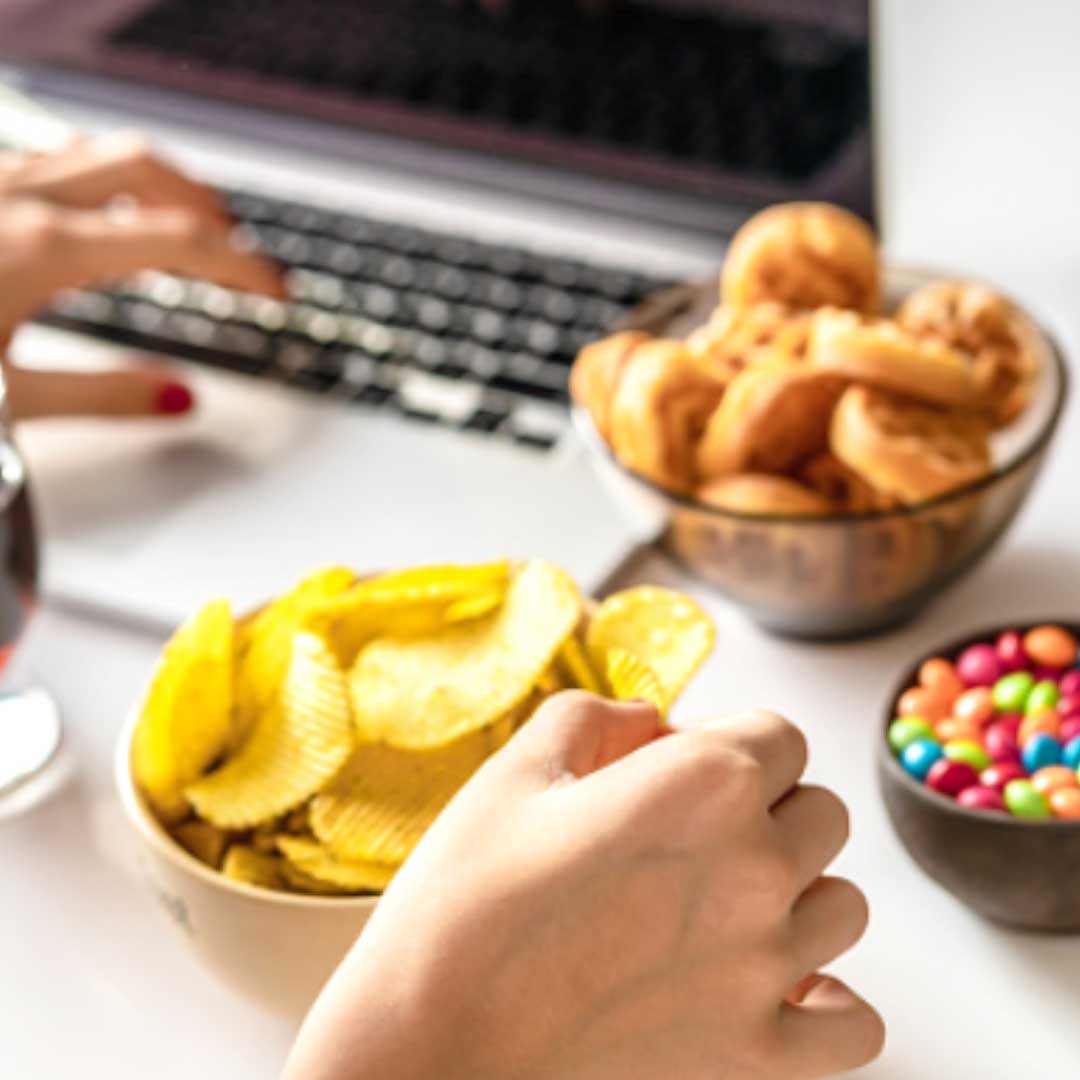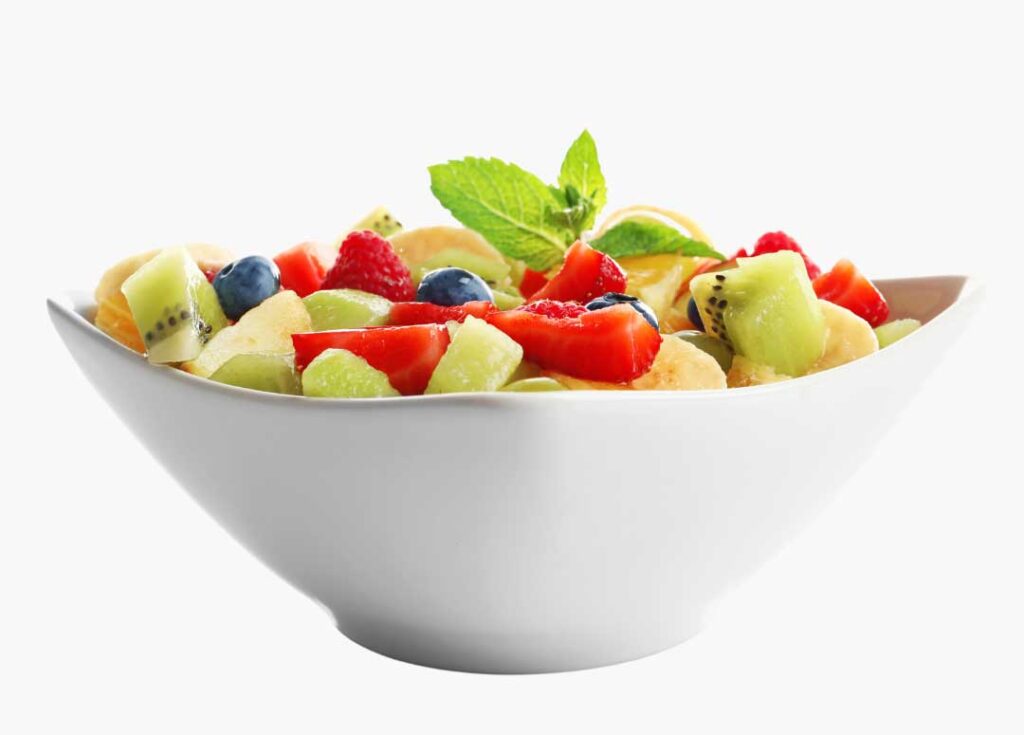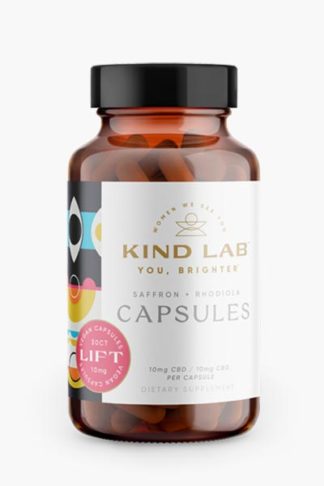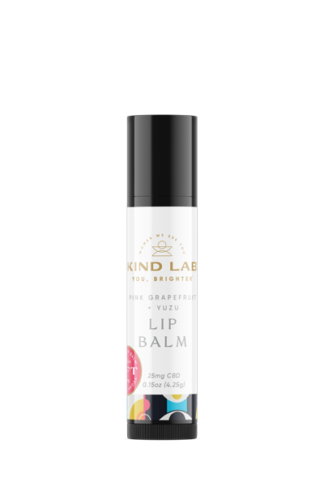
We’ve all reached for comfort food when we’re stressed or emotional, usually something that is sugary, salty, or high in fat. Eating when you’re not hungry is normal – and sometimes it’s hard to resist.
But stress eating – a cycle of overeating that coincides with high amounts of stress and is usually followed by a period of shame or worry that often fuels subsequent cycles – is not.
Not only does stress eating take its toll on mental health, but the physical impacts of stress eating can start to add up: fluctuations in weight, excessive fatigue, a preoccupation with food, difficulty identifying the cues of physical (vs emotional) hunger, and more.
And, of course, prolonged stress increases our cortisol levels, which then leads to a series of possible health concerns from diabetes to heart disease.
The best way to stop stress/emotional eating is to develop healthier responses to stress. At Kind Lab, we always encourage people to stay ahead of stress so it doesn’t overtake you, which can then lead to unhealthy responses. CBD is a great option to manage stress and mood so you’re able to better react to and recover from stress (see our recommendations below).
Another is to remove triggers in your house – for example, replacing foods that you know you’ll feel guilty eating with healthier alternatives. One we always recommend having a look at is added sugar.
We often crave sugary, high carb foods when we’re feeling down or depleted and our bodies are looking for quick energy. But added sugar can actually throw us into a cycle of highs and lows, and make us want more – a tough spot to be in if you’re already battling stress/emotional eating.

We spoke with certified nutritional therapist, Briana Stockton, on ways to give our bodies the energy we need without doubling down on the food or behaviors that are making us feel bad. Here’s what she told us:
“When you’re depleted, you tend to reach for low-nutrient, “empty” foods. Ironically, this is when you should be eating high nutrition, gut-friendly foods that will give you the true boost of energy you’re craving.”
Makes, sense. But how does it affect our mood? “Your gut is your second brain, and your digestive system has a lot to do with your mood,” she tells us. “Keeping it happy will do the same for your mood.”
In order to get that boost of energy we’re seeking when we turn to sugary sweets, Briana recommends fruit. “Fruit has gotten a bad reputation because it contains sugar, but it’s really added sugar that’s the problem.”
“Fruit contains sugar as glucose, the type your body breaks all other sugars (ex. sucrose) down to, so it’s very easy for your body to process and absorb. Plus, fruit contains natural probiotics, water, and fiber – all great for digestion.”
To facilitate gut health, Briana is a big proponent of food combining. “Food combining is the basis behind a lot of popular diets right now, such as Atkins and keto. The problem with those diets is that they often aren’t sustainable because they can be restrictive. Food combining is a more basic concept that helps you learn about how your body reacts to foods so you figure out what and when to eat that works with rather than against your goals and creates a sustainable lifestyle of beneficial eating.”

She recommends starting your day with a hearty servings of fruits. “That adage of eating a carb-laden breakfast, like oatmeal or cereal, was actually created by the makers of oatmeal and cereal.”
“In the morning hours, your digestive system is in elimination mode, so easy-to-digest fruit with its added fiber & probiotics is the perfect food during that time period to help with that process. Plus, the energy boost you’ll get from the fruit sugars will help you power through your day.”
Briana says fresh fruit is best, but dried fruits (with no added sugar) work in a pinch and are a great on-the-go morning snack.
And, as the term “food combining” suggests, some foods don’t play well with others. “Fruit should always be eaten on its own, not combined with other foods such as proteins and fats. This results in an optimal digestive process and nutrient absorption,” advises Briana.
At Kind Lab, we’re big proponents of making a series of small changes, as they add up to big differences over time. So if you find yourself overeating and its causing you worry, or your looking for ways to increase your daytime energy, swap out your normal daily breakfast for fruit – try it for a week and see how you feel.
If you want to learn more about gut health and its connection with your mood, and the benefits of food combining, you can find Briana on her website and Instagram.
SHOP OUR MOST POPULAR DAYTIME STRESS & MOOD SOLUTIONS
Looking to connect with people who understand you?
Sign up for our newsletter and find us on social media for more information and inspiration to prioritize your own health & happiness.


